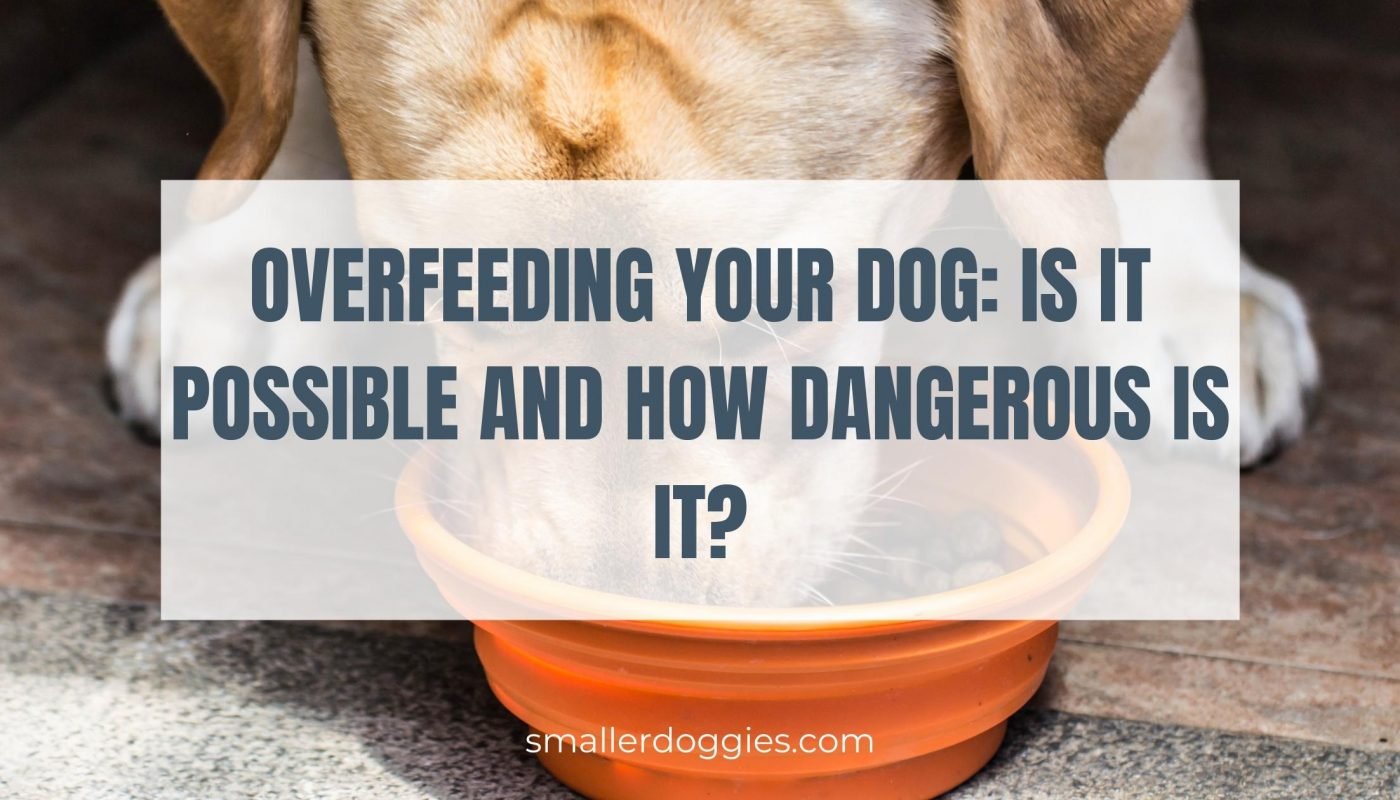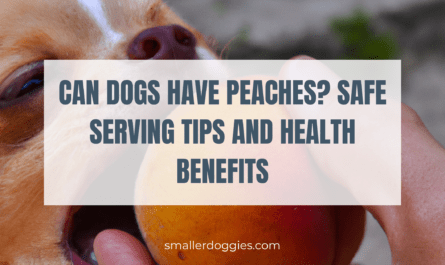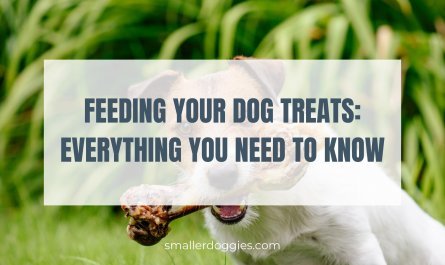Post Disclaimer
This post may contain affiliate links. If you use these links to buy something we earn a commission at no extra cost to you. Smaller Doggies is supported by its audience, Thank you!
As a small dog owner, you may be wondering if you can feed your pet too much and how risky this could be for them. Surprisingly enough, there are many risks associated with overfeeding your little dog, and it’s pretty easy to do.
Overfeeding your dog is not only possible, but it’s also dangerous. The reason why people overfeed their dogs is that they want to make sure that their dog will always have food available when they want it, they will tend to feed them with love, by giving the dog some of their food to eat, throwing them a bone or two or by simply giving them too many treats. By combining these habits, you can quickly see how easy it is to overfeed your beloved pooch.
Read on to find out how dangerous overfeeding is, what symptoms to look out for, and how to stop overfeeding your dog.
How dangerous is it to overfeed your dog?
If your dog is overweight, then the most straightforward answer would be that it’s very dangerous. Overfeeding a pet can lead to bloating, obesity, heart disease, or even diabetes. In some cases, this could also cause cancer.
The problems of obesity are not only physical but psychological as well. Dogs can show signs of aggression and have problems getting along with other pets. It can also shorten the life span of your dog by two years.
What are the symptoms of overfeeding?
Depending on the weight, age, breed, and metabolism of your dog. They will need different amounts of food each day. However, there are some common signs to look for to check to indicate your dog may be overfed.
- Low energy levels
- begging
- bloating
- diarrhea
- constipation
Your dog could have many of these signs or just one or two; it is vital to have your dog checked by a veterinarian if you are concerned. Some of these symptoms may also indicate another health-related issue, so checking with your veterinarian is necessary to diagnose and treat your dog correctly.
How to avoid overfeeding your dog
If your dog is overweight, there are some steps you can take to help them lose weight. However, before you start drastically changing your dog’s diet and routine, talk with your veterinarian first, as not all dogs will have the same process.
Here are a few questions to ask yourself as this may be helpful information to provide to your veterinarian when you go in for a checkup.
How much food are you feeding your dog each day?
You may be asking whether this includes bones, scraps, and treats. Yes, yes, it does!
When training, you will need to take the amount you have given in treats out of their food at mealtime. This also applies to any bones or kongs given.
Is the food you are giving nutritional for your dog?
What do I mean by this? You may be feeding your dog, but are they eating nutritious food that fills them up?
Do you feed your dog routinely every day?
Dogs are creatures of habit, and a consistent feeding schedule contributes to an animal that is happier and more content overall.
How much exercise is your dog getting daily?
If this answer is not really, it may be as simple as taking your dog for a walk daily, or even 2-3 times a week depending on your schedule to help shed the extra weight.
Frequently Asked Questions
How do I know how much food my dog needs?
Your dog should be eating the recommended amount of food for its weight, age, and metabolism of your dog. Refer to further information on the back of the food you buy for your dog for serving suggestions, consult a vet, or ask them for a diet chart specific to your type of dog; this will give you insight into roughly how much your dog should be eating per day.
What happens if a puppy eats too much?
If your puppy is eating more than it should, you may notice these symptoms such as bloating, diarrhea, acting lethargic. We would advise consulting a vet.
What can I give my dog to make her feel full?
Try adding vegetables to your dog’s meals; vegetables like carrot, green beans, and broccoli contain vitamins and nutrients that are great for your dog!
So there you have it overfeeding your dog is very much a reality. As mentioned above, overfeeding your dog can be easily done but can be dangerous for your beloved pooch. This weight gain may lead to long-term health problems later in life. Make sure to consult a professional before making any changes to their diet, so you know what will work best for your dog.
What type of dog do you have? let us know in the comments below
What are your views on this? Share in the comments bar below.


